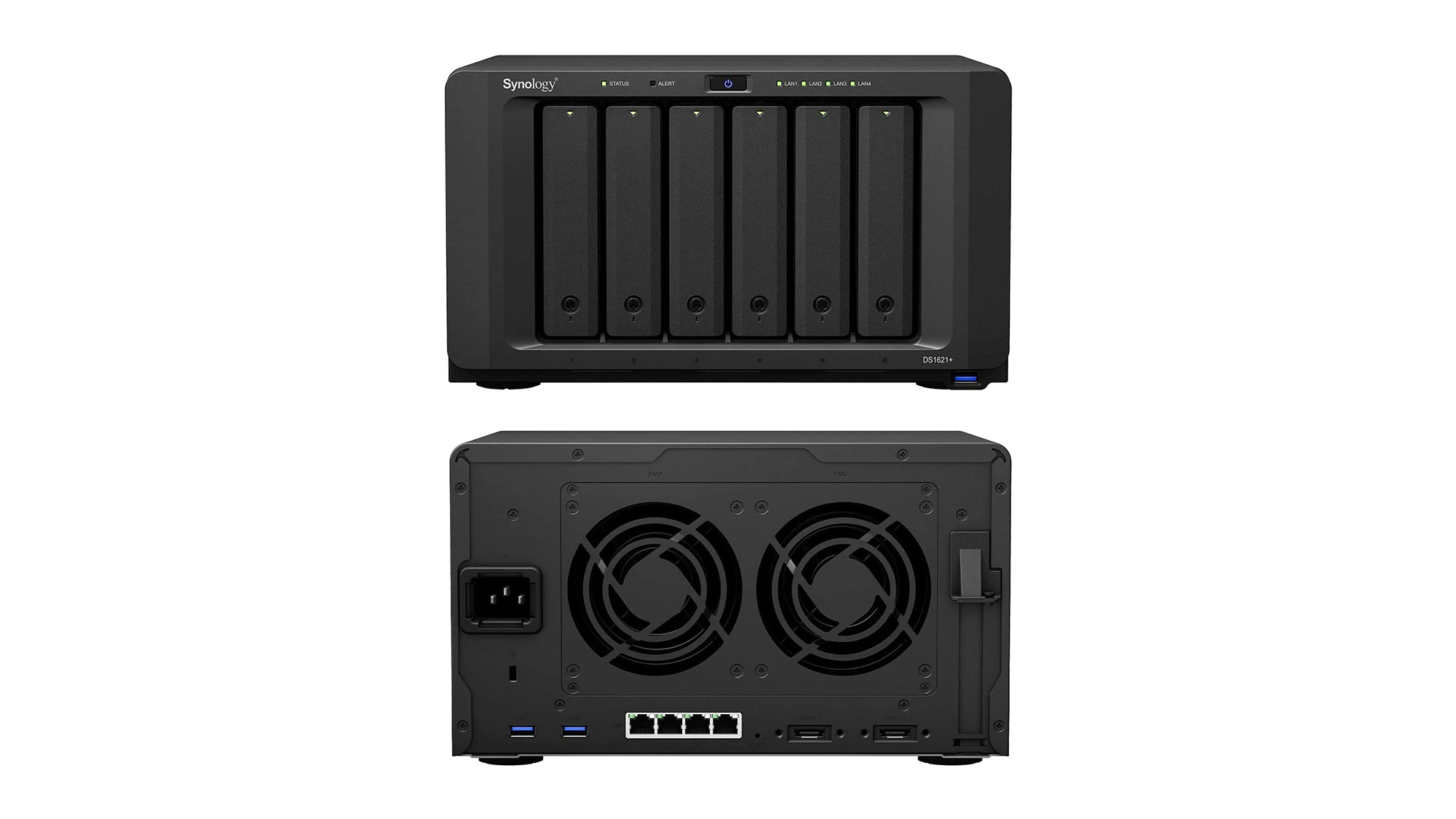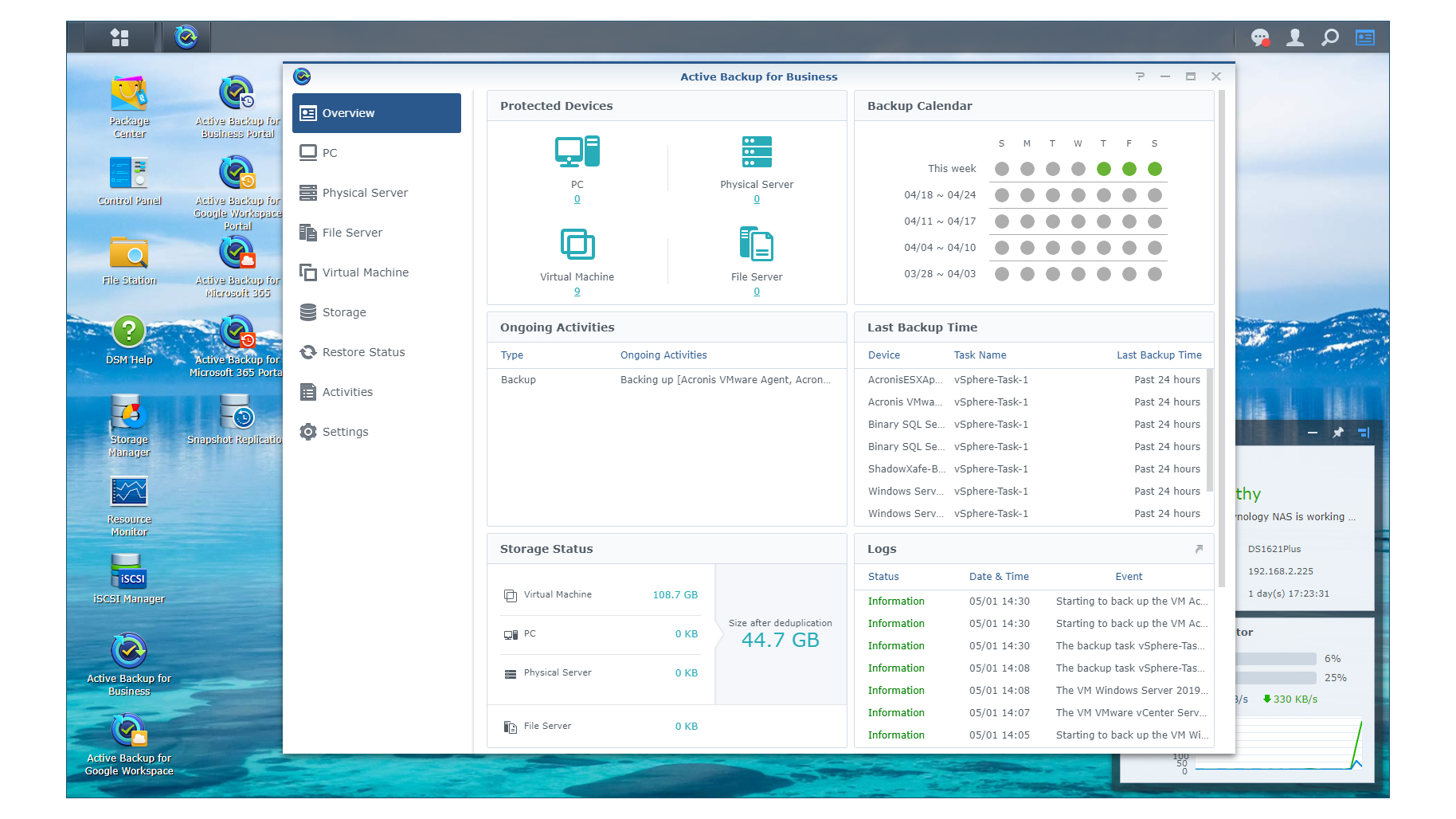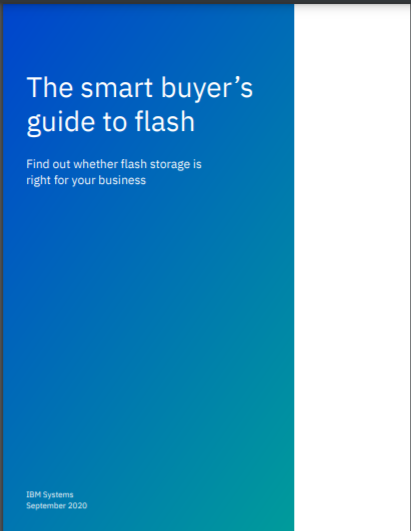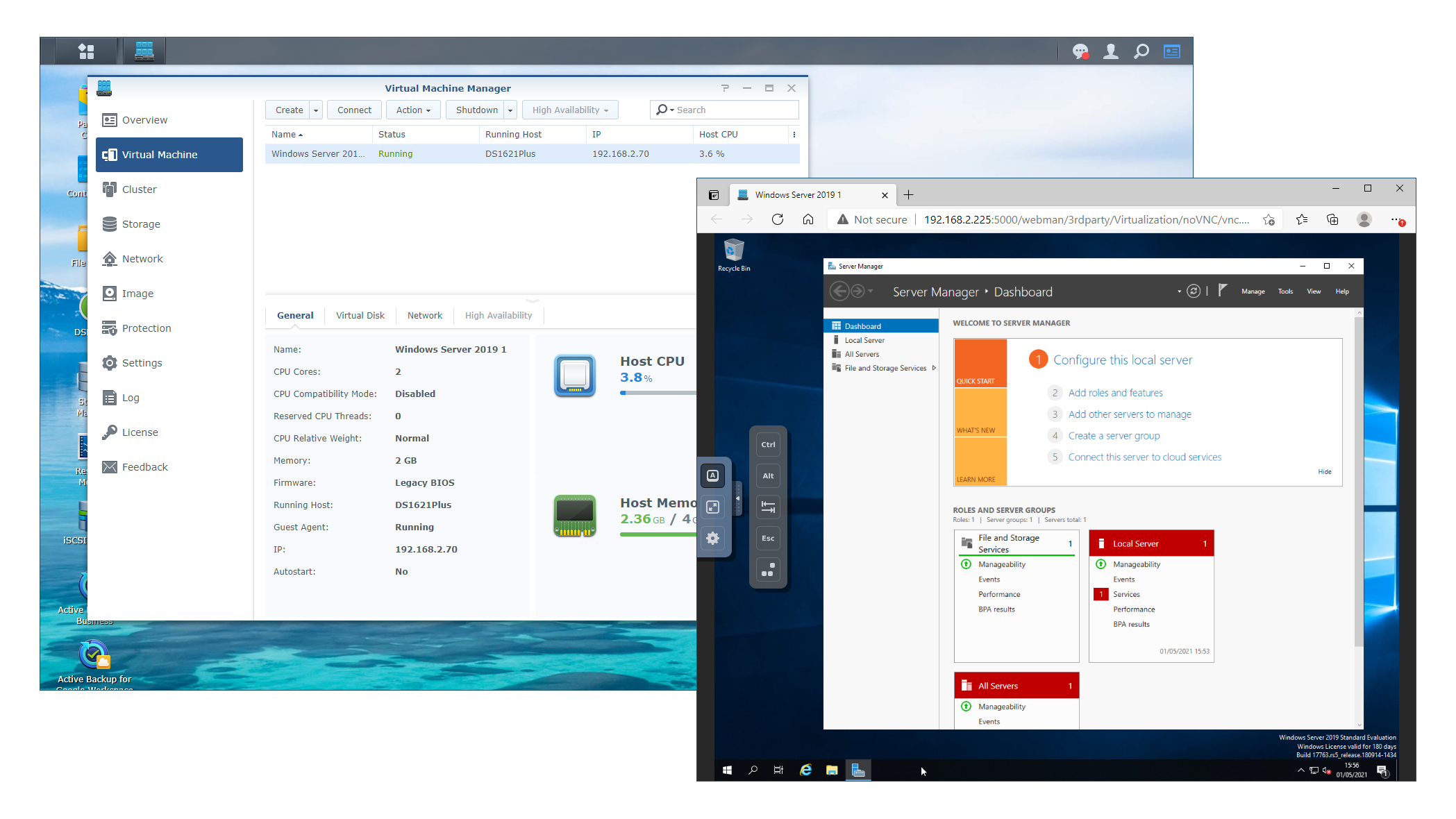Synology DiskStation DS1621+ review: A speedy desktop contender
A flexible 6-bay desktop NAS priced right for small businesses


-
+
Good value
-
+
AMD Ryzen CPU
-
+
Decent 10GbE performance
-
+
Dual M.2 NVMe slots
-
+
PCI-E slot
-
+
Super data protection apps
-
-
Reduced network adapter compatibility
-
-
SSDs only support caching

Stepping up as the direct replacement to Synology’s six-bay DS1618+ desktop NAS appliance, the DS1621+ offers a number of interesting improvements over its predecessor. The big news is Intel getting the elbow, as the DS1621+ is one of a range of new Plus Series appliances from Synology that are powered by a quad-core 2.2GHz AMD Ryzen V1500B CPU.
The main benefit AMD brings to this appliance is performance; Synology claims it’s up to 76% faster than the DS1618+ for sequential read operations. This is no idle claim, either - our lab performance tests came back with some very respectable numbers.
The other major update is the pair of embedded M.2 NVMe SSD slots located in the side panel. With the DS1618+, you had to use one of Synology’s add-in cards if you wanted SSD caching and this welcome feature frees up the PCI-E slot for network upgrades.
It’s also a much more affordable alternative to Synology’s Intel Xeon-powered 6-bay DS1621xs+. This desktop speed demon comes with embedded 10GBase-T and delivered a stunning performance when we tested it, but you pay a hefty premium for the privilege as it costs nearly twice as much.
Synology DiskStation DS1621+ review: Build quality and features
The DS1621+ uses the same sturdy charcoal-black steel box as its predecessor, which employs a pair of 9.2cm diameter rear fans for all cooling. It’s very quiet; we measured sound levels of only 39dB from one metre in front, making this appliance a great choice for small offices that value tranquillity.
Memory starts at 4GB of server-grade ECC memory, which can be easily upgraded to 32GB since the two SO-DIMM slots are located behind a removable hatch in the base. Port permutations haven’t changed: you still get quads of Gigabit and USB 3 ports, while the dual eSATA ports team up with Synology’s DX517 five-bay expansion units to push the drive count to 16.

For performance testing, we installed four of Toshiba’s new air-filled 4TB MG08-D series of hard disks. These are aimed specifically at business users that are more focused on cost and reliability, and don’t need the massive capacities of helium-filled spinners. To test caching efficacy, we fitted two 480GB Kingston DC1000B enterprise-class M.2 NVMe SSDs and although neither these nor the Toshiba drives feature on Synology’s compatibility list, the DSM software allowed us to use them.
Sign up today and you will receive a free copy of our Future Focus 2025 report - the leading guidance on AI, cybersecurity and other IT challenges as per 700+ senior executives
More caution is needed when selecting a 10GbE adapter, however, as Synology is rapidly shrinking its third-party hardware compatibility list and focusing more on its own solutions. When we installed the same Emulex dual-port 10GbE adapter we’d used to test the DS1618+, the DS1621+ hung during the boot phase and would only accept a dual-port Intel X520 10GbE adapter.
Synology DiskStation DS1621+ review: 10GbE performance
With a share mapped over 10GbE to a Dell T640 Xeon Scalable host running Windows Server 2019, we watched Iometer report excellent sequential read and write rates of 9.2Gbits/sec and 8.4Gbits/sec. The DS1618+ returned the same read speed but a significantly lower write rate of only 4.3Gbits/sec.
The DS1621+ handled our real world tests better. Copies of a 25GB file delivered slightly faster read and write rates of 4.8Gbits/sec and 4Gbits/sec, while our backup test averaged 2.4Gbits/sec – the DS1618+ mustered 2.3Gbits/sec. The AMD CPU beat the Atom hands-down for encryption performance as copying our 25GB test file to an encrypted NAS folder averaged 2.4Gbits/sec – a 62% improvement over the DS1618+.
RELATED RESOURCE

The smart buyer’s guide to flash
Find out whether flash storage is right for your business
IP SAN 10GbE performance revealed more improvements, with a 500GB iSCSI target presented by the DS1621+ returning Iometer sequential read and write rates of 9.2Gbits/sec and 8.3Gbits/sec. That represents respective improvements of 27% and 40% over the DS1618+. The differences became even more marked when using a dual 10GbE MPIO link to the iSCSI target, with the DS1621+ returning read and write speeds of 18.4Gbits/sec and 8.1Gbits/sec. The DS1618+, meanwhile, only managed 11.8Gbits/sec and 5.5Gbits/sec.
If you plan on using NVMe SSDs, note that they can only be used as a cache and not as a separate storage pool, and will only provide any significant improvements to random operations. Using the 10GbE MPIO link to the iSCSI target and Iometer set to 4K blocks, we recorded random read and write rates of 72,500 IOPS and 3,350 IOPS without caching and with a mirrored cache assigned to the storage pool, watched these numbers increase to 75,200 IOPS and 43,500 IOPS.
Synology DiskStation DS1621+ review: The best DSM features
Look no further for data protection features, as Synology’s DSM 6.2 software is chock full of apps and utilities. The Snapshot Replication app handles manual and scheduled snapshots of NAS shares and iSCSI LUNs on Btrfs-formatted volumes while Hyper Backup manages all local, remote, Rsync, cloud and iSCSI LUN backups from a single console.

The free Active Backup Suite is Synology’s star player as it includes Active Backup for Business (ABB) for protecting data on Windows workstations and servers plus VMware and Hyper-V virtual machines (VMs), another app for Microsoft 365 and a third for Google Workspace. Private backup clouds are on the agenda too, as the Drive app provides Dropbox-like synchronization services for collaboration and file sharing.
Synology’s productivity apps include the Office suite which is offered as a free alternative to Microsoft 365. It works with the Drive app to provide a central location for users to create documents, spreadsheets and presentations, collaborate on them together with others and keep them secure.
You’ll need to upgrade the memory but the Virtual Machine Manager increases the appliance’s versatility as it can host VMs running just about any OS you choose plus extra instances of DSM. And then there’s Synology’s class-leading Surveillance Station which supports over 7,600 IP camera models and offers a remarkable range of video recording and management services.
Synology DiskStation DS1621+ review: Verdict
The DS1621+ is a good choice for SOHOs and SMBs that want more capacity than a four-bay NAS appliance can offer but have a keen eye on costs. Value looks good, too - it’s around £100 cheaper than its eight-bay DS1821+ stablemate, the AMD CPU delivers a substantial boost in performance over the older Atom-powered DS1618+ and Synology’s DSM software provides a superb range of apps and utilities.
Synology DiskStation DS1621+ specifications
| Chassis | Desktop |
| CPU | Quad-core 2.2GHz AMD Ryzen V1500B |
| Memory | 4GB ECC DDR4 (max 32GB) |
| Storage | 6 x SATA LFF/SFF, 2 x M.2 NVMe SSD slots |
| RAID | Synology DSM |
| Array support | RAID0, 1, 10, 5, 6, JBOD, SHR |
| Expansion | 1 x PCI-E Gen3 x8 |
| Network | 4 x Gigabit |
| Other ports | 3 x USB 3, 2 x eSATA expansion ports |
| Power | Internal 250W PSU |
| Management | Web browser |
| Warranty | 3 years limited |
Dave is an IT consultant and freelance journalist specialising in hands-on reviews of computer networking products covering all market sectors from small businesses to enterprises. Founder of Binary Testing Ltd – the UK’s premier independent network testing laboratory - Dave has over 45 years of experience in the IT industry.
Dave has produced many thousands of in-depth business networking product reviews from his lab which have been reproduced globally. Writing for ITPro and its sister title, PC Pro, he covers all areas of business IT infrastructure, including servers, storage, network security, data protection, cloud, infrastructure and services.
-
 Hackers are using LLMs to generate malicious JavaScript in real time – and they’re going after web browsers
Hackers are using LLMs to generate malicious JavaScript in real time – and they’re going after web browsersNews Defenders advised to use runtime behavioral analysis to detect and block malicious activity at the point of execution, directly within the browser
By Emma Woollacott Published
-
 AI coding is taking off in the US – but developers in another country are “catching up fast”
AI coding is taking off in the US – but developers in another country are “catching up fast”News Developers in the United States are leading the world in AI coding practices, at least for now
By Nicole Kobie Published
-
 Veeam ramps up growth plans with trio of leadership hires
Veeam ramps up growth plans with trio of leadership hiresNews The data resilience vendor has reshaped its senior leadership team to deepen partner engagement and streamline customer success in the AI era
By Daniel Todd Published
